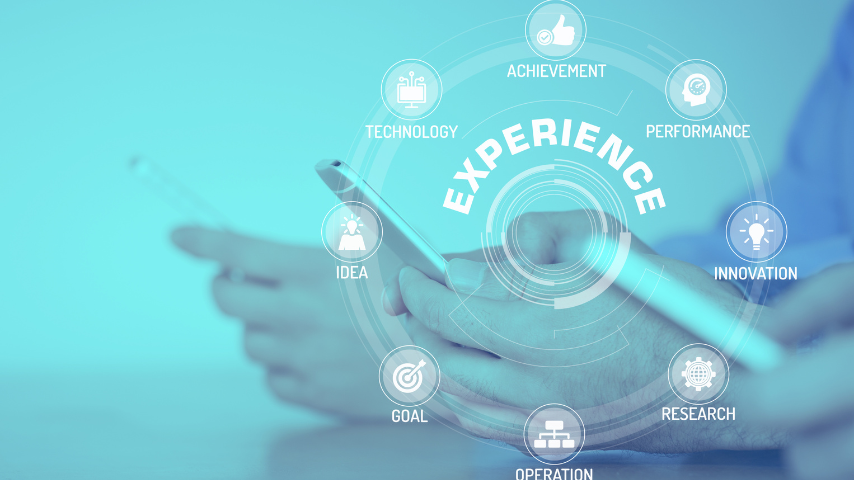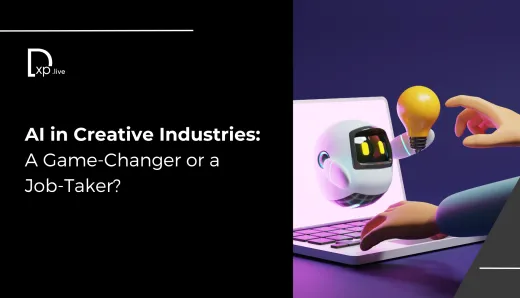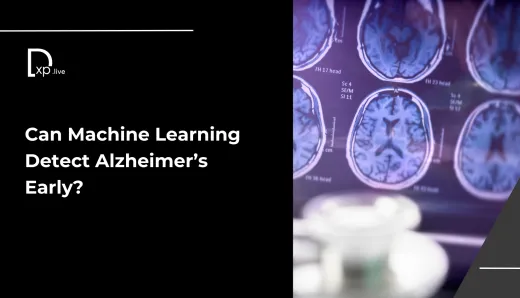AI and the Evolution of Work: Shifting the Focus from Mundane to Meaningful

The debate over artificial intelligence (AI) often revolves around fears of job displacement, automation, and loss of human relevance. Yet, a quieter, more positive narrative is emerging—one that positions AI as a catalyst for more meaningful work. Far from relegating employees to obsolescence, AI is freeing up humans from repetitive, low-value tasks and enabling them to focus on creative, strategic, and emotionally intelligent endeavors. But this transition isn’t just theoretical; it’s already happening across industries. Let’s explore how AI is paving the way for more fulfilling work.
AI: A Tool for Meaningful Engagement
For decades, automation has primarily been associated with reducing the need for human labor, particularly in manufacturing and service industries. However, today's AI technologies—driven by machine learning and natural language processing—are far more sophisticated, capable of handling a wide range of cognitive tasks. These advancements are shifting the conversation from automation as a threat to a tool that enhances human potential.
Take, for instance, the World Economic Forum’s 2020 Future of Jobs Report, which estimated that while 85 million jobs may be displaced by machines and automation by 2025, 97 million new roles will emerge that are more attuned to the human skills of creativity, problem-solving, and interpersonal communication. These figures highlight that the impact of AI isn’t a zero-sum game; it’s a reshuffling of priorities that elevates human capabilities.
Repetitive Tasks Are Waning—and That’s a Good Thing
One of the clearest impacts AI has had on the workforce is in automating repetitive, administrative tasks. In sectors such as customer service, finance, and healthcare, AI is taking over monotonous tasks that previously bogged down employees.
In customer service, AI-driven chatbots and virtual assistants have revolutionized how routine inquiries are handled. IBM reported that businesses using AI-powered virtual agents can reduce customer service costs by up to 30%, allowing human agents to focus on more complex, emotionally charged issues. Similarly, in healthcare, AI-driven systems like Olive AI handle administrative tasks such as scheduling, freeing healthcare professionals to focus on patient care, where human expertise is irreplaceable.
By relieving employees of these routine responsibilities, AI creates the space for more engaging work. Jobs that once required hours of data entry or repetitive problem-solving can now be refocused on strategy, creativity, and higher-level analysis—roles where humans excel.
AI Augments, It Doesn’t Replace
One key concern often raised in discussions around AI is the fear that it will replace humans entirely. However, this perspective misses the crucial point: AI is most effective when it augments human capabilities rather than replaces them. For example, in professions that rely heavily on data analysis, AI can sift through vast quantities of information at speeds no human could match, identifying trends and patterns. However, it still takes a human touch to interpret these findings and make informed decisions.
In marketing, for instance, AI-driven analytics platforms provide detailed insights into consumer behavior, but the strategy and creative direction that arise from those insights remain a human domain. According to McKinsey, companies that effectively blend AI with human expertise are more likely to outperform their competitors. This human-AI collaboration fosters a more meaningful work environment where employees are not just completing tasks but also driving innovation.
Emotional Intelligence Is Becoming Essential
AI may be excellent at pattern recognition and task automation, but it struggles with emotional intelligence (EQ), a uniquely human trait that is becoming more critical in the workplace. As automation takes over rote tasks, jobs requiring empathy, creativity, and leadership are in higher demand.
A study by LinkedIn revealed that demand for emotional intelligence skills has increased by 20% annually since 2019, as companies recognize the need for leaders and employees who can navigate complex interpersonal dynamics. In this context, AI is not a competitor but an enabler. By handling the technical and repetitive aspects of work, AI allows employees to focus on building stronger relationships with colleagues, customers, and clients—skills that machines simply cannot replicate.
More Time for Innovation and Creativity
As AI offloads routine work, time is freed up for innovation and creativity—two essential components of meaningful work. A survey by Accenture found that 61% of executives believe the most important benefit of AI is that it enables workers to focus on what they do best: being creative and innovative. This shift has led to the rise of new, hybrid roles that blend technical skills with creative problem-solving.
Consider the tech industry, where AI-powered coding assistants like GitHub’s Copilot are enabling software developers to automate large parts of code writing, allowing them to focus more on innovative solutions and overall system architecture. Similarly, in fields like architecture and product design, AI is taking over aspects of prototyping and simulation, giving designers more time to think about aesthetics, functionality, and user experience.
This increased focus on creativity not only drives innovation but also makes work more fulfilling. Employees who can engage in tasks that stimulate their intellect and imagination are more likely to find their work meaningful and satisfying, which contributes to overall job satisfaction and retention.
Reskilling: A Necessary Investment
As AI continues to reshape the workforce, the need for reskilling becomes paramount. According to the OECD, more than 1 billion people will need reskilling by 2030 to keep pace with technological advancements. This massive shift will require a concerted effort from businesses, governments, and educational institutions to ensure that workers can transition into new roles where AI complements rather than competes with their skills.
For employers, investing in reskilling not only benefits their workforce but also enhances their competitive edge. Companies that focus on upskilling their employees for roles that emphasize creativity, critical thinking, and emotional intelligence will be better positioned to thrive in an AI-driven economy. Furthermore, this investment in human capital has long-term benefits: engaged, skilled employees are more likely to stay with an organization, reducing turnover and fostering a more dynamic, innovative workplace.
AI Can Make Work More Human, Not Less
Far from dehumanizing the workplace, AI has the potential to make work more human by eliminating the drudgery of repetitive tasks and allowing employees to focus on what truly matters: creativity, problem-solving, and building relationships. The Harvard Business Review aptly summarizes this shift, noting that the "rise of the meaningful economy" is closely tied to the increasing automation of routine work. By shifting the focus away from tasks that drain employee energy, AI allows for a deeper connection to work, fostering purpose and fulfillment.
AI as a Path to More Meaningful Work
AI is undeniably reshaping the world of work, but the narrative that it will lead to widespread job displacement is overly simplistic. Instead, AI is freeing employees from the constraints of mundane, repetitive tasks and opening up opportunities for more meaningful, creative, and human-centered work. By augmenting human capabilities, AI is not only improving productivity but also paving the way for more fulfilling careers—where problem-solving, emotional intelligence, and innovation take center stage. The future of work, it seems, is not less human but more.
As companies navigate this AI-driven landscape, those that focus on reskilling, emotional intelligence, and creativity will find themselves well-positioned to harness the true potential of this technology, creating workplaces where employees feel empowered and engaged. In doing so, AI will not only transform industries but also redefine what it means to work.




